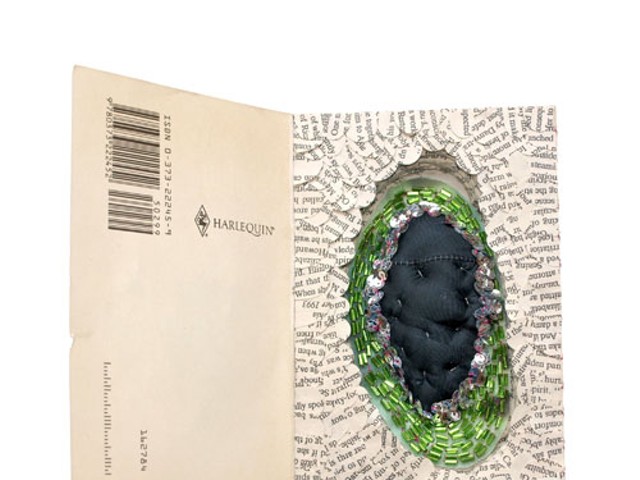Paula Vogel's satire about the early days of the AIDS crisis revolves around a first-grade teacher, Anna (Kate Frisina), who develops a case of full-blown Acquired Toilet Disease (ATD) and decides to spend what time remains to her by seeing the sights of Europe from her back. Accompanying Anna is her brother Carl (Stephen Peirick), a polyglot homosexual librarian who has recently been suspended from his job for politicizing the children's story time; and a mysterious, trench-coat-wearing fellow (DJ Sanders) who lurks on the periphery of the gallivant.
These elements could make for a lively evening of laughs at the expense of the medical community, death-defying bravado and creeping paranoia — the dark realities of AIDS subverted through wit and the indefatigable human spirit. But this The Baltimore Waltz seems to operate at half-speed, never quite breaking the resound barrier.
The show's most satisfying element is the interplay between Frisina and Peirick as a sister and brother who treasure one another's company. Frisina's delight at once again being allowed to sleep in the same bed with her brother, and Peirick's contented grin when she slips under the covers beside him, reveals more about their bond than any speech could. They make a likable and engaging pair — especially as Carl breezily accepts Anna's parade of foreign bedmates. Each of these entwining companions (all of them played by DJ Sanders) is a stock character who provides a few laughs via caricature. Sanders' Frenchman is lascivious, his German an arrogant anarchist and his Dutch boy straight from the label on the paint can — right down to the clogs. This is not a complaint; Sanders' accents are convincing, and he brings most of the humor in his over-the-top portrayals of an American's notion of our European neighbors.
Sanders' turn as the Third Man, the shadowy figure who dogs the siblings' steps, is less clearly developed. The Third Man and Carl have a prior relationship, which Carl hopes to parlay into the purchase of a black-market cure for Anna's ATD. Much time is spent on the mysterious import of Carl's boon companion, a stuffed rabbit from his childhood and how the Third Man has one just like it. This thread is plucked and abandoned several times throughout the evening.
But Frisina's monologues on her impending death are what repeatedly kill Waltz's momentum. There's little sense of depth or emotional resonance to these interludes — nothing that illuminates the tragedy or unfairness of her looming demise. The death scene itself — which delivers a major plot twist, so forgive the vagueness — seems so rushed that when the lights go out it's difficult to believe the play has ended. The result is a story that pays lip service to razor-edged satire but fails to draw blood.





